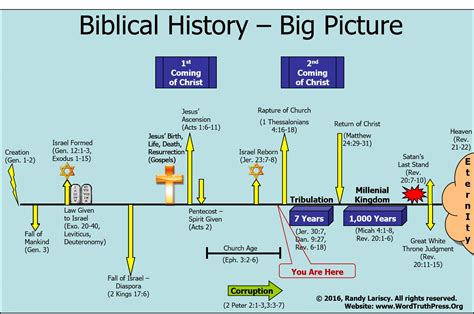Exploring Biblical History: A Beginner's Guide
Delving into the rich tapestry of biblical history can feel daunting, like stepping into a vast and ancient library filled with countless scrolls. But understanding the historical context of the Bible unlocks a deeper appreciation for its narratives and profound impact on world civilizations. This guide provides a foundational framework for beginners, offering a chronological journey through key periods and events. We won't be focusing on theological interpretations, but rather on the historical backdrop against which the biblical stories unfold.
What is Biblical History?
Biblical history encompasses the events and periods described in the Bible, spanning millennia and encompassing diverse cultures and empires. It's important to note that biblical accounts are not purely historical documents in the modern academic sense. They blend historical narratives with theological reflection, poetry, and legal codes. This requires a nuanced approach, recognizing both the historical context and the literary genre of each passage. We need to approach it critically, comparing biblical accounts with archaeological evidence and other historical sources wherever possible.
Key Periods in Biblical History
We can broadly categorize biblical history into several key periods:
1. The Patriarchal Age (roughly 2000-1800 BCE): This era focuses on the lives of Abraham, Isaac, and Jacob, their families, and their migrations through Mesopotamia and Canaan. This period lays the foundation for the Israelite identity and covenant with God. Archaeological evidence helps us understand the cultural landscape of this time, though direct confirmation of specific biblical figures remains elusive.
2. The Exodus and the Conquest of Canaan (roughly 1400-1200 BCE): This period covers the Israelites' enslavement in Egypt, the Exodus led by Moses, and the subsequent conquest of Canaan, the Promised Land. While the precise details of the Exodus remain debated, archaeological findings related to the Bronze Age collapse and migration patterns in the region offer valuable context. The debate surrounding the historicity of certain events in this period is ongoing, but the impact of these narratives on Israelite identity is undeniable.
3. The Period of the Judges (roughly 1200-1050 BCE): After the conquest of Canaan, the Israelites were initially governed by judges—charismatic leaders who rose to deliver them from various threats. This period reflects a decentralized political structure. Archaeological evidence from this era shows the development of Israelite settlements and their interaction with neighboring cultures.
4. The United Monarchy (roughly 1050-930 BCE): King Saul, followed by David and Solomon, united the twelve tribes of Israel into a single kingdom, establishing Jerusalem as its capital. This period saw significant political and economic expansion. Archaeological excavations in Jerusalem have revealed evidence of significant building projects during this era, supporting the biblical accounts of Solomon's reign.
5. The Divided Kingdom (930-586 BCE): After Solomon's death, the kingdom split into the northern kingdom of Israel and the southern kingdom of Judah. This period was marked by frequent conflicts between the two kingdoms and with neighboring empires, ultimately leading to the destruction of both kingdoms by foreign powers.
6. The Babylonian Exile and Return (586-539 BCE): The destruction of Jerusalem and the Babylonian exile represent a pivotal moment in biblical history. This period forced a significant reevaluation of Israelite identity and faith. The subsequent return to Jerusalem under Persian rule marks the beginning of the postexilic period.
7. The Persian and Hellenistic Periods (539-63 BCE): The return from exile and the rebuilding of the temple in Jerusalem ushered in a new era. The Persian and later Hellenistic empires influenced Jewish life, leading to conflicts and ultimately contributing to the rise of various Jewish sects and movements.
8. The Roman Period (63 BCE-70 CE): Roman rule brought about significant changes for the Jews, marked by uprisings and rebellions against Roman authority, culminating in the destruction of the Second Temple in 70 CE. This period holds immense significance for early Christianity.
Frequently Asked Questions
How accurate is the Bible historically?
The accuracy of the Bible as a historical document is a complex issue. Different parts of the Bible employ different literary genres, ranging from historical narratives to poetry, prophecy, and law. Archaeological findings often corroborate certain aspects of biblical accounts, while other elements remain debated. A critical approach, comparing biblical texts with extra-biblical sources and archaeological evidence, is crucial.
What are some key archaeological discoveries related to the Bible?
Numerous archaeological discoveries have shed light on the historical context of the Bible. Examples include discoveries related to the Israelite kingdoms, the destruction of cities mentioned in the Bible, and inscriptions that mention biblical figures or events. However, it's crucial to remember that archaeological findings alone cannot prove or disprove every biblical claim. They often provide context and corroboration for certain aspects of the biblical narrative.
How can I learn more about biblical history?
Begin with introductory books on biblical history and archaeology. Consult reputable academic journals and websites for in-depth analyses. Consider exploring online resources and museum exhibits focusing on biblical archaeology. Remember to engage with multiple perspectives and approaches to gain a comprehensive understanding.
Conclusion
Exploring biblical history requires a journey of critical inquiry and careful consideration. By approaching the biblical text with an understanding of its historical and literary context, alongside insights from archaeology and other historical sources, we can gain a richer and more nuanced appreciation for this fascinating and influential period of human history. This beginner’s guide offers a starting point for this journey; continue to explore and delve deeper into the fascinating world of biblical history.

